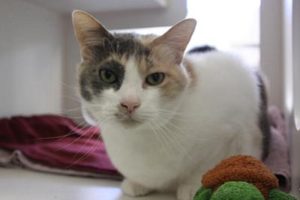 The next 10 days is the most fun and raucous time in most communities. The festivities culminate around the 4th of July with outdoor celebrations, picnics, barbecues, and of course, fireworks. Before you pack up to the lake or the outdoor arena, stadium or even your own front yard to enjoy the pyrotechnic delights of the holiday, be aware of your pets’ needs and fears.
The next 10 days is the most fun and raucous time in most communities. The festivities culminate around the 4th of July with outdoor celebrations, picnics, barbecues, and of course, fireworks. Before you pack up to the lake or the outdoor arena, stadium or even your own front yard to enjoy the pyrotechnic delights of the holiday, be aware of your pets’ needs and fears.
Animal shelters across the nation experiences a significant increase in the number of lost (and injured) pets brought into their facilities after every July 4 holiday.
Even pets who are normally calm and obedient can show unpredictable behavior when frightened. Dogs and cats can become frightened or confused by the excitement and loud noises of the holiday. I have rescued terrified pets who have chewed through their tethers, jumped through plate glass windows or over fences, and escaped “secure” enclosures.
Dogs attempting to flee the frightening, and even painful noises of the fireworks may lose their sense of direction and run long distances risking injury or death as they dart in and out of traffic. This is one of the most dangerous times of year for your pets.
Up close, fireworks can burn or injure your pets, but even if they are far away, they still pose a unique danger to your companion animals.
To minimize the danger to your pets take these few simple steps before you set out to celebrate this Fourth of July:
• Keep pets indoors in an enclosed area that they are familiar with to minimize fear. If possible, turn on a radio to mask the noise of the fireworks or other celebratory noises.
• If your pet is excitable, consult with your veterinarian ahead of time to arrange administration of a proper calming drug.
• If you have to be away for an extended time, board your pets with family or friends you trust and can assure you that the pet will be kept confined and cared for.
• Always be sure your pet has a current microchip. A microchip is the best identification for a pet because it is always with him and it makes it easier for YHS to find you should the unthinkable happens and your pet manages to escape.
• Even if you think your pet is ok with fireworks and noise, do not let him out when fireworks are being lit and set off. The pet may run at them and sustain serious burns, or bolt and run.
If your pet happens to escape during the holiday festivities, be diligent in visiting your local shelters every day, and posting “Lost Dog” or “Lost Cat” signs and canvassing surrounding neighborhoods. Place a yard sign in front of your house with a picture of your pet and your phone number. People who find lost pets will often walk or drive around the area attempting to find the owner.
Remember, fright can drive an animal to new and unfamiliar grounds, many miles from your home. So exhaust all avenues. This 4th of July holiday can be the best ever if you take these precautions to keep your pets safe and happy while you enjoy the festivities without having to worry about the family pet.
Life-saving microchips can be purchased at most shelters. Please protect your pets this 4th of July.

